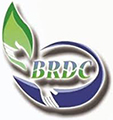Policies/Regulations
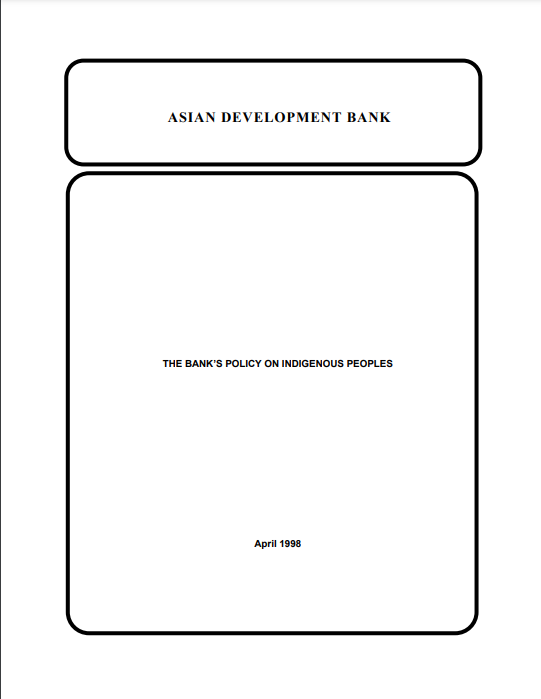
The Bank's Policy on Indigenous Peoples
1998
Publisher/Organisation: Asian Development Bank
This paper addresses policy approaches toward recognizing the circumstances of indigenous peoples and identifying measures toward satisfying their needs and aspirations. The paper focuses on the participation of indigenous peoples in development and mitigation of undesired effects of development.
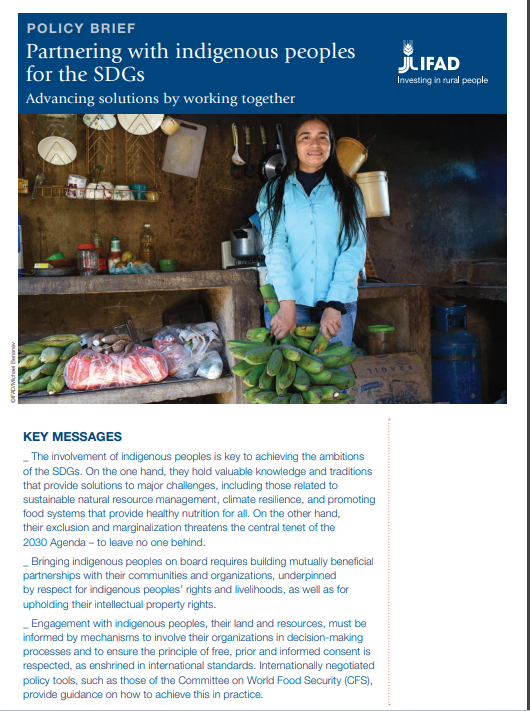
Policy Brief: Partnering with Indigenous Peoples for the SDGs
2019
Publisher/Organisation: International Fund for Agricultural Development
Engagement with indigenous peoples, their land and resources, must be informed by mechanisms to involve their organizations in decision-making processes and to ensure the principle of free, prior and informed consent is respected, as enshrined in international standards. Internationally negotiated policy tools, such as those of the Committee on World Food Security (CFS), provide guidance on how to achieve this in practice.
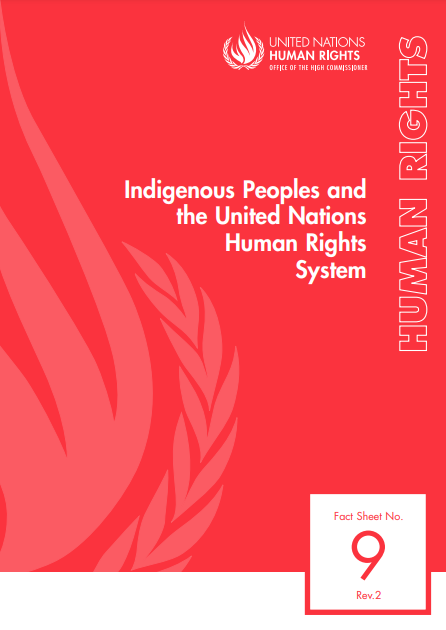
Indigenous Peoples and the United Nations Human Rights System
2013
Publisher/Organisation: United Nations Human Rights
Indigenous peoples live on all continents, from the Arctic to the Pacific, via Asia, Africa and the Americas. There is no singularly authoritative definition of indigenous peoples under international law and policy, and the Indigenous Declaration does not set out any definition. In fact, its articles 9 and 33 state that indigenous peoples and individuals have the right to belong to an indigenous community or nation, in accordance with the traditions and customs of the community or nation concerned, and that they have the right to determine their own identity.
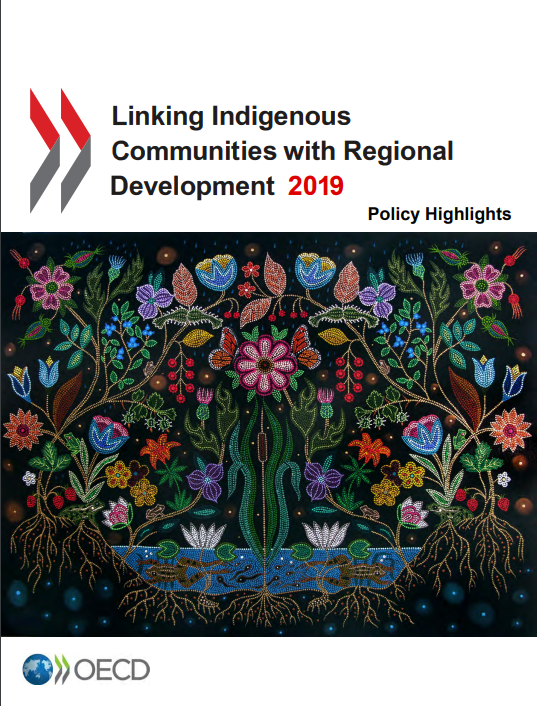
Linking Indigenous Communities with Regional Development 2019 : Policy Highlights
2019
Publisher/Organisation: The Organization for Economic Cooperation and Development (OECD)
Despite these achievements, Indigenous peoples have to confront and overcome histories of discrimination, loss, and dispossession. European settlements, for example, severely shrunk and permanently altered the land and resources available for Indigenous peoples to sustain their traditional economies. Dependency relationships with states and religious institutions further resulted in Indigenous economic activities being determined within a framework set by non-Indigenous peoples. As a result, the capacity for Indigenous peoples to set their own development pathway was diminished, negatively affecting their wellbeing, language and culture.
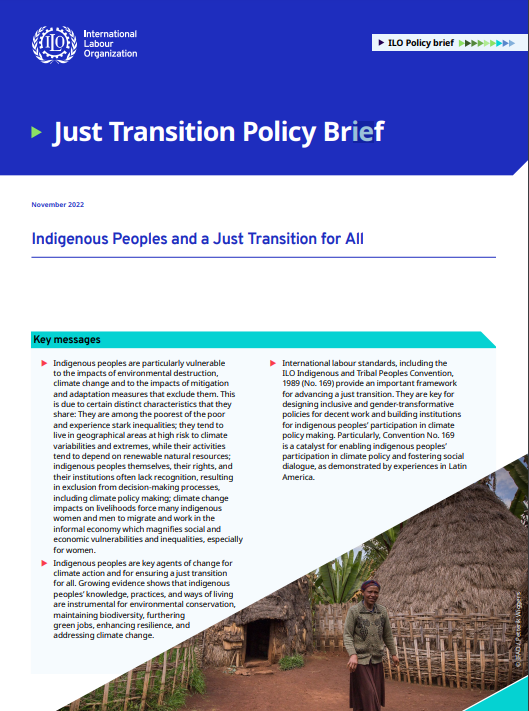
Indigenous Peoples and a Just Transition for All : Policy Brief
2022
Publisher/Organisation: International Labour Organization
International labour standards, including the ILO Indigenous and Tribal Peoples Convention, 1989 (No. 169) provide an important framework for advancing a just transition. They are key for designing inclusive and gender-transformative policies for decent work and building institutions for indigenous peoples’ participation in climate policy making.
Implementing Indigenous Self - determination through Legislation in Canada
2017
Publisher/Organisation: John Borrows
Canada and Indigenous peoples should work together to produce legislation which recognizes and affirms Indigenous self-determination. While far from perfect, Indigenous peoples in the United States have created receptive policy frameworks with Congressional allies which builds law on principles of self-determination.
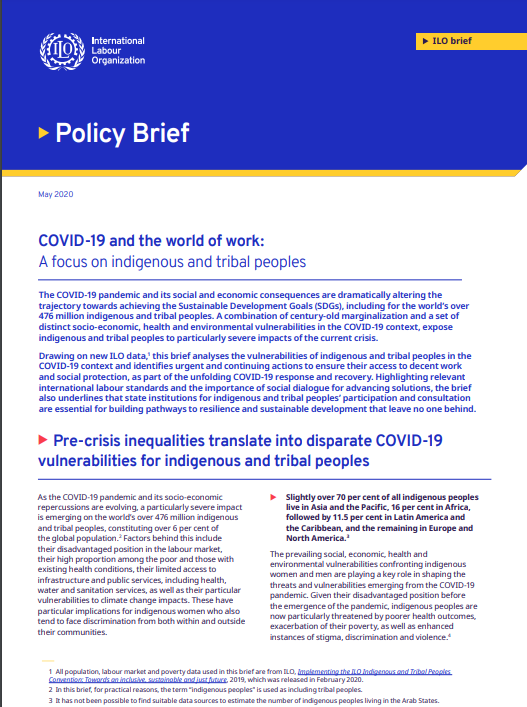
COVID-19 and The World of Work: A Focus on Indigenous and Tribal Peoples
2020
Publisher/Organisation: International Labour Organization
Drawing on new ILO data, this brief analyses the vulnerabilities of indigenous and tribal peoples in the COVID-19 context and identifies urgent and continuing actions to ensure their access to decent work and social protection, as part of the unfolding COVID-19 response and recovery. Highlighting relevant international labour standards and the importance of social dialogue for advancing solutions, the brief also underlines that state institutions for indigenous and tribal peoples’ participation and consultation are essential for building pathways to resilience and sustainable development that leave no one behind.
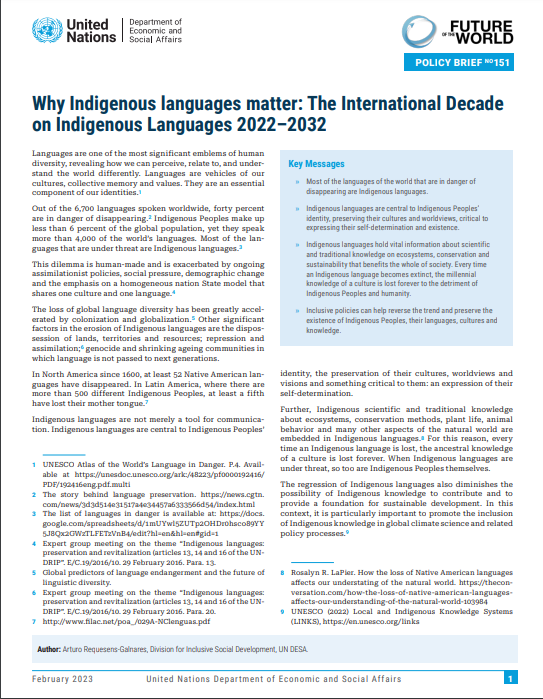
Why Indigenous languages matter: The International Decade on Indigenous Languages 2022–2032
2023
Publisher/Organisation: United Nations Department of Economic and Social Affairs
The loss of global language diversity has been greatly accelerated by colonization and globalization. Other significant factors in the erosion of Indigenous languages are the dispossession of lands, territories and resources; repression and assimilation; genocide and shrinking ageing communities in which language is not passed to next generations.
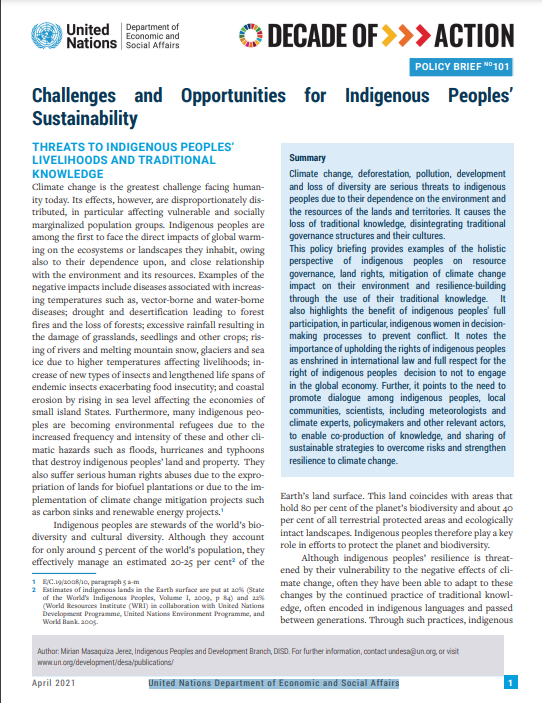
Challenges And Opportunities For Indigenous Peoples’ Sustainability
2021
Publisher/Organisation: United Nations Department of Economic and Social Affairs
Although indigenous peoples’ resilience is threatened by their vulnerability to the negative effects of climate change, often they have been able to adapt to these changes by the continued practice of traditional knowledge, often encoded in indigenous languages and passed between generations.
Directive 2001/83/EC on the Community Code Relating to Medicinal Products for Human Use
2004
Author(s): European Parliament, The Council of the European Union
EU legislation on pharmaceutical products for human use also applies to traditional herbal medicines. Herbal medicinal products are defined as any medicinal product, exclusively containing as active ingredients one or more herbal substances, one or more herbal preparations, or a combination of the two.

